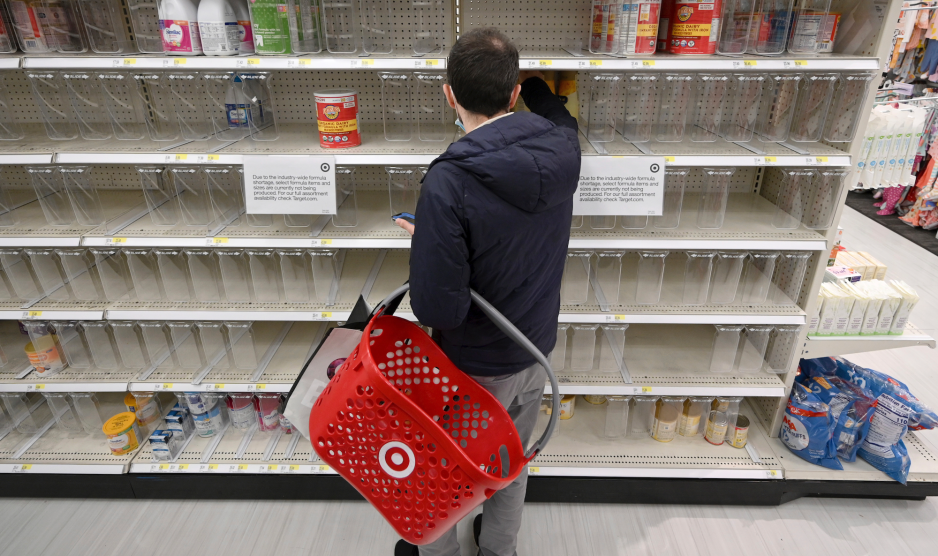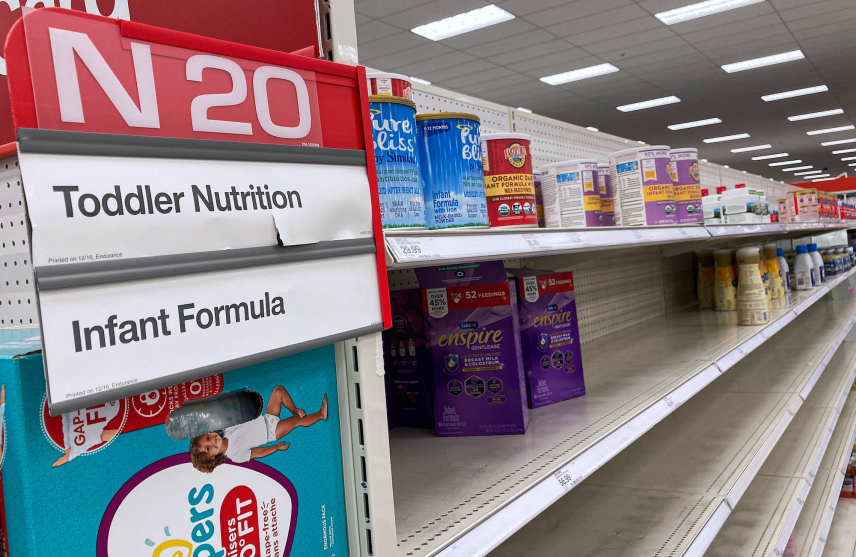
ANTHONY BEHAR/AP
President Biden on Thursday spoke to the leading manufacturers of baby formula amid deep frustration and panic from caretakers over the nationwide shortage, announcing additional measures from the administration aimed at alleviating the current emergency. These include allowing vulnerable families who rely on WIC benefits to purchase from a wider variety of formula options and cracking down on price-gouging.
It’s an encouraging step forward. The shortage, a potentially life-threatening scenario for countless infants, had received little attention from lawmakers on either side of the aisle. (Until this week, many seemed wholly unaware that a shortage even existed.) But while it’s a relief to see the White House recognizing the urgency of the situation, the new actions appear limited and do little to answer the most pressing question looming over families right now: when we can start seeing empty shelves replenished.
As a new mother who relies on formula to feed her seven-month-old, I couldn’t help but scratch my head at some of the announced proposals. For example, the administration indicated that it’s talking to foreign trading partners over potential imports. But 98 percent of formula is domestically produced. The popular formula brands in Europe are also not allowed to be sold in the States and are highly discouraged by pediatricians. I know because after buying the European brand Holle in the initial days of my son’s life—when the pressure to bring him back to birth weight made breastfeeding incredibly difficult for me—I was immediately instructed not to use it because it wasn’t FDA approved. I’m thankful, amid this shortage, that I never binned it and wouldn’t hesitate to use it should my current supply of FDA-approved formula vanishes.
The announcement to increase the number of formula products that can be used under WIC is crucial and is sure to be welcomed by low-income families who have been unnecessarily burdened by the program’s restrictions. But the administration, as demonstrated by Thursday’s White House press briefing, still doesn’t appear to have a sufficient response for caretakers struggling to secure formula that go beyond referring to a doctor. While calling up the pediatrician could bring answers for some—though I struggle to believe that they’re in a position to hand out tons of formula at this point—plenty of vulnerable families lack the health insurance to turn to a pediatrician.
I still have to wonder how much of the current shortage could have been prevented if the government had stepped in earlier. After all, the out-of-stock rate for baby formula started rising in early 2021, only to get significantly worse by the summer. Between November and April 2022, the rate jumped to a staggering 31 percent.
Here’s to hoping that we see additional measures announced soon.

















